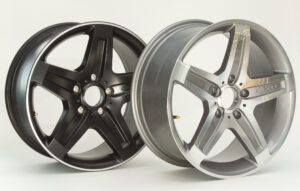
Mercedes-Benz warns of rise in global trade in counterfeit parts
By onAnnouncements | International | Legal
The global trade in counterfeit Mercedes-Benz parts is on the rise, with 1.86 million counterfeit products seized in more than 650 customs and law enforcement raids in 2021 alone, the automaker has said.
Mercedes-Benz said the number of seized products rose by some 6% from the previous year.
“During the pandemic over the past two years, product pirates increasingly used online platforms and social media channels to offer counterfeit goods,” the company said.
As has been reported, parts shortages caused by pandemic-related supply chain disruptions have led some buyers to seek alternatives to their usual, trusted suppliers in certain cases.
“Counterfeit goods can be placed on online platforms at very short notice and sold with the support of social media. For this reason, Mercedes-Benz has further expanded its strategic and operational measures against counterfeiting in online trading,” the OEM said. It said 126,000 products were removed from online platforms alone in 2021.
The measures taken by its brand protection team focus primarily on safety-related components, such as brake discs, wheels, body, and steering parts. They identify counterfeiters by checking suspicious offers on online platforms and social media or trade fairs worldwide.
Renata Jungo Brüngger, member of the Board of Management of Mercedes-Benz Group AG, Integrity & Legal Affairs, said, “The counterfeiting industry has organized crime structures and often generates higher profits than drug trafficking. We are working closely with authorities around the world in order to curtail these structures and combat threats to road safety.”
Mercedes-Benz said the issue is not only one of intellectual property rights, but of public safety as well.
“It’s often hard to visually distinguish counterfeit products from genuine parts. However, blatant differences in quality and safety quickly become apparent on the test track and on the road,” the OEM said. “The quality of counterfeit products is usually poor and they do not meet the minimum legal requirements in terms of safety. Therefore, counterfeit products pose a significant risk to the health and safety of road users.”
Mercedes-Benz recommends that buyers check unusual offers very carefully. An extremely low price, conspicuous product quality issues or sale via dubious online sources can all be red flags. “It is often even possible to see from the product images or designations that the parts cannot be genuine, since Mercedes-Benz simply doesn’t manufacture such items,” it said.
A Mercedes-Benz spokesperson suggested to Repairer Driven News that shops always work with an authorized dealer, to make certain that they are not buying fake parts. “It is not always easy to identify a counterfeit part at first glance. An authorized dealer distributes genuine parts and may offer assistance,” the spokesperson said.
According to the most recent data from the Automotive Anti-Counterfeiting Council (A2C2), a collaboration of North American automakers working to identify and stop the proliferation of counterfeit automotive parts in the North American market, the estimated financial impact of counterfeit auto parts entering the U.S. exceeds $1 billion for A2C2 members.
“A2C2 believes the counterfeit auto parts problem has been growing for several years,” the organization told Repairer Driven News. “U.S. Customs and Border Protection statistics show the number of intellectual property rights seizures of all types rose from 14,841 in 2009 to 27,599 in 2019, an increase of 86 percent, while the domestic value of those seizures jumped from $260.7 million to $1.56 billion, an increase of 497 percent.”
One factor, the council said, is the continued increase in online shopping by American consumers. “The U.S. Department of Commerce reports e-commerce accounted for $149.7 billion in 2009 – just 4.0 percent of all U.S. retail sales – but by 2019 online sales had quadrupled to $595.9 billion, good for 10.9 percent of retail sales. Aided further by the COVID-19 pandemic, e-commerce has accounted for 14.0 percent of all retail through Q3-2020,” the council said.
“Those growing sales, combined with the ease with which sellers can gain entry to online marketplaces, the ability of counterfeiters to conceal their activities on these sites, and consumers’ general lack of awareness that some auto parts sold online are counterfeit, are key factors in the growing counterfeit auto parts problem.”
A2C2 urges repairers to fight counterfeiting by using “common-sense research measures” when evaluating suppliers and procuring replacement parts. “It is most important for shops to know and trust the source of their parts and utilize reputable supply chains,” the organization said.
It suggests that anyone who suspects they have been sold a counterfeit part contact the National Intellectual Property Rights Coordination Center or the brand protection department for that automaker, as found in the members section of the A2C2 website, a2c2.com.
More information
National Intellectual Property Rights Coordination Center
https://www.iprcenter.gov/referral/view
A2C2: “The Online Sale of Counterfeit Automotive Parts”
Images
Featured image: An original Mercedes-Benz wheel after a stress test, left, compared with a counterfeit. (Provided by Mercedes-Benz)
A car with counterfeit brake pads, at top in the photo, has a significantly longer braking distance than one with genuine Mercedes-Benz brake pads. (Provided by Mercedes-Benz)

